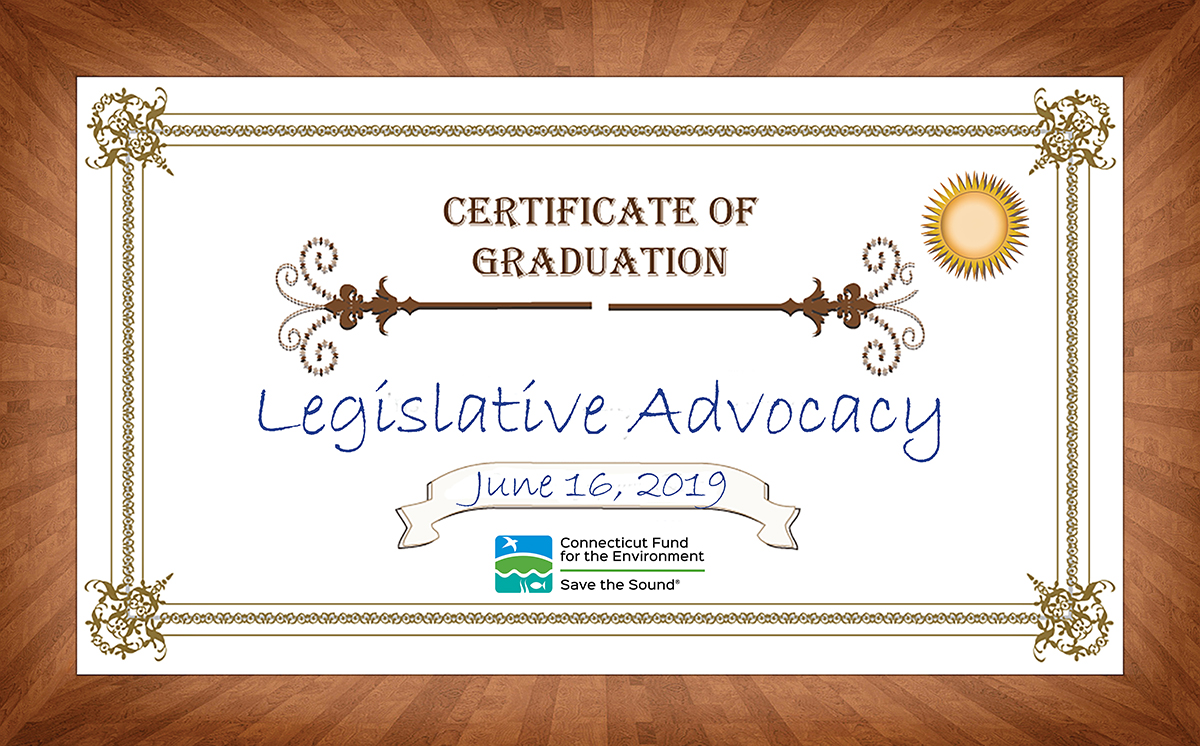Congratulations, you made it!
Now that the legislative session is over and legislators are on a much-needed break, give yourself a pat on the back for all the successful advocating you’ve done. It sure was a nail-biter—right up to the bell at midnight on June 5!
You’ve learned a lot about Connecticut’s legislature along the way—the legislative process, lobbying your lawmakers, and writing testimony for bills. There’s just one last step before a bill becomes a law and one more legislative homework assignment to protect your environment.
The Signature…or Veto
After the house and senate pass a bill, it heads to the Legislative Commissioners’ Office (a team of lawyers who ensure the bill’s language is clear, constitutionally sound, and consistent with other laws) for engrossing, certifying the final language of the bill with any/all amendments incorporated. After the final copy is complete, the bill heads to the Secretary of State and then on to the Governor for signature.
The governor has a short, strict timeline to:
A. Sign the bill (becomes a law).
B. Take no action (becomes a law).
C. Veto the bill (the bill heads back to the legislature).
Any vetoed bill can still become a law if both chambers vote to pass the bill by a 2/3 vote. It’s actually the norm for a governor to veto a few bills—there have been vetoes each year for decades.
Once a bill is signed by the governor, it is referred to as a “public act,” given a new number, and finally written into state law to be part of the Connecticut General Statutes. Sometimes, for exciting bills or significant legislation, there will be a special bill signing ceremony after which he hands out the pen he used to sign the bill.
If needed, state agencies then draft regulations to implement the new law, hold public hearings, and get approval from the legislature’s Regulations Review Committee.
It ain’t over ‘til the bell rings again.
You might remember in odd-numbered years the session runs from January to June, during which the two-year state budget is completed. During even-numbered years, the session is February to May.
However, the governor has the right to call for a special session after the end of the regular session, and the General Assembly can call for a veto session in order to override any of the governor’s vetoes.
Nearly every year, the legislature returns to Hartford for a special session. Although it hasn’t been announced when this year’s special session will start, the subjects will definitely include legislation on bonding and might include discussion of tolls and marijuana.
Boatload of bonding and you have the oars.
The state bonding package usually includes clean water funding for wastewater projects that protect local waters and Long Island Sound. It helps fund things like sewage treatment plant upgrades, engineering designs, green infrastructure, and sea level rise preparedness.
This year’s budget proposes $75 million in grant bonds for the next two fiscal years and $84 million in loan bonds for fiscal year 2021. This bonding is very helpful, but isn’t even close to the level Connecticut municipalities need to truly integrate innovative solutions that will benefit our environment and keep our communities safe today and tomorrow.
We’ll soon be asking you to use your new skills to reach out to your representatives once again so they know how important clean water is to you.
Stay tuned, and congratulations!


